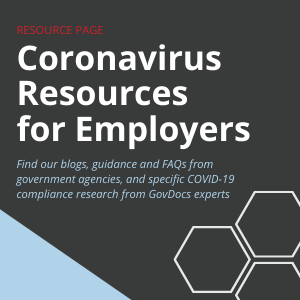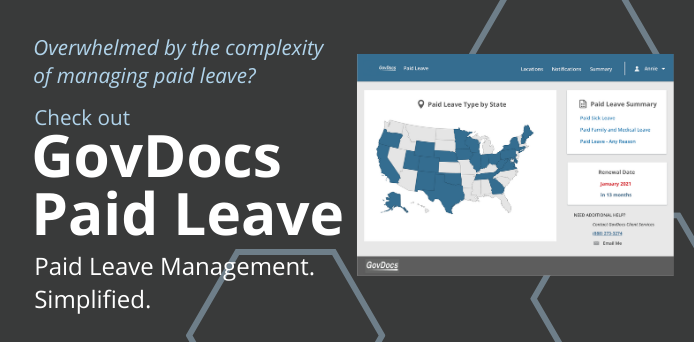EMPLOYMENT LAW NEWS
The #MeToo Movement: Where We Are Today
By Kris Janisch
Published Oct. 22, 2020

Examining the state of employment laws related to the #MeToo Movement three years later.
The #MeToo Movement has evolved from a hashtag about sexual assault to a rallying cry for changes to workplace employment law. Years after the advent of #MeToo, where are we today?
Impacts of the hashtag, which gained prominence following sexual assault allegations against a Hollywood movie producer in 2017, have reverberated across the U.S., as lawmakers have responded to the movement to make substantive changes to employment law.
Legislative responses to #MeToo can take many forms, including:
- Equal pay
- Sexual harassment training
- Salary history bans
- Lower standards to establish harassment claims
Employers must be cognizant of these new laws, as well as increased attention to workplace conduct, where a stray remark could result in lawsuits and negative headlines.
Three years after the October 2017 suggestion that women add #MeToo to hashtags about their sexual harassment or assault incidents, we will examine the influence the movement has had on employment law.
Harassment Prevention Training
Foremost among the laws that have arisen as a result of #MeToo pertain to harassment training.
Since the onset of #MeToo, seven states, along with New York City, have passed laws requiring harassment-prevention training:
- California
- Connecticut
- Delaware
- Illinois
- Maine
- New York
- Washington
- New York City
Each has their own regulations regarding how these laws must be followed. These include:
- Covered employers
- Covered employees
- Training dates and requirements
- Recordkeeping requirements
Some jurisdictions require training of all employees; others focus on new hires or managers and supervisors. Still others focus on specific industries, such as hotels and retail. Find a full examination of these harassment training requirements on a previous Employment Law News blog.
Lastly, jurisdictions have sometimes set lower standards to establish claims or extended statutes of limitations to file claims, another facet of #MeToo employment laws. Multi-jurisdiction employers should be sure to consult local regulations to ensure they’re in compliance.
Equal Pay
Depending on the source, women in the U.S. earn about 81 percent of what men earn. The #MeToo Movement has further highlighted these inequities, and most states have equal pay laws on the books.
Generally, these laws prohibit employers from paying employees less on the basis of race or sex. Some also ensure companies cannot limit employment opportunities based on sex or gender identity, as is the case in Maryland, which added new civil penalties to its equal pay law last year.
The climate has also spurred some larger employers to audit payroll ledgers and work to correct discrepancies, according to a New York employment lawyer.
“It’s on several different fronts,” he told NPR. “Fortunately, the majority of employers want to do the right thing. … Then the question becomes: Are these disparities based upon legitimate reasons or are these disparities based upon historical inequalities or decision makers making poor decisions?”
Elsewhere, states are limiting liability for employers that examine potential pay inequities and take steps to correct them.
State and local equal pay laws have increased in recent years, with some states, including New Jersey, expanding protections beyond gender and race to cover relationship status, ancestry and more.
Salary History Bans
Perhaps not as prominent as harassment training and equal pay, salary history bans have also accelerated in recent years in response to #MeToo.
Most recently, Maryland’s salary history ban went into effect Oct. 1, 2020. Like similar measures elsewhere, it includes a component that applies gender-based pay discrimination to job applicants as well as employees. It stipulates that employers may not:
- Use an individual’s pay history when screening applicants for employment
- Use wage history to determine a new hire’s pay
- Ask applicants about salary history
The idea behind salary history bans is the notion that women (as well as other groups) are typically paid less than their male peers. When an employer uses pay history to make decisions, it continues the trend.
Nearly 20 states and as many smaller jurisdictions have salary history ban laws in place, with all going into effect between 2017 and 2020.
Other #MeToo Considerations
In addition to the #MeToo laws above, there are other considerations for employers as they navigate this new landscape.
Interesting legislation has developed regarding confidentiality in settlement agreements, non-disclosure provisions and testifying.
And in California, a law signed in 2018 mandates that publicly held businesses there must have at least one woman on its board of directors. More stringent guidelines, based on the number of individuals on a company’s board of directors, will go into effect Dec. 31, 2021.
For another example, Illinois in 2019 passed several new measures related to the #MeToo Movement designed to curb workplace sexual harassment in the workplace:
- Changes to employee contracts that protect against sexual harassment claims
- Strengthened ability for workers to report allegations
- Additional state agency oversight
- Sexual harassment training requirements
- “Panic buttons” for certain hotel and casino employees
- Supplemental training for bar and restaurant workers
- Permits contract employees to bring harassment claims
In light of these and other laws, employers would be wise to re-examine their policies to align with new regulations and the current cultural climate.
Conclusion
Despite the fact that the COVID-19 pandemic has garnered much of the attention in the realm of employment law over the past several months, employer requirements related to #MeToo will likely continue to be enacted.
The #MeToo Movement has already created a wave of new statutes for employers to follow. Once the pandemic subsides, the attention of legislators will likely return to these laws.
This Employment Law News blog is intended for market awareness only, it is not to be used for legal advice or counsel.
Keep Informed
with GovDocs Labor Law News

What is GovDocs?
GovDocs simplifies employment law compliance for large, multi-jurisdiction employers in the U.S. and Canada. The GovDocs software platform integrates three solutions in one convenient place to help you master the employment laws impacting your business. Whether you manage a postings, minimum wage or paid leave program, our products cut through research time, provide proactive insights into the everchanging landscape of employment laws and reduce the risk of noncompliance. The company is headquartered in St. Paul, Minn.
Have fewer than 30 locations?
The GovDocs Poster Store simplifies posting compliance for employers with less than 30 locations across all industries, offering a variety of posting products to meet your labor law compliance needs.



